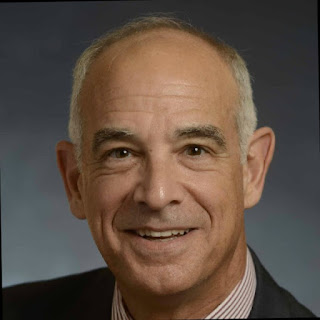In this podcast I had the honor of interviewing Major General (retired) David Rubenstein. Among the many duties of his career, General Rubenstein was the commander of the Army Medical Department Center and School, which was the unit where I was an instructor before I retired from the Army, and he was also the chief of the Medical Service Corps, the Army branch that I served in for 23 years. Although I did not work directly with him on active duty, I can say that General Rubenstein was one of the most respected Medical Department generals I knew of during my career. While I only saw him at a distance while we were on active duty, over the last several years I have had the opportunity to get to know him post-retirement through our mutual interest in health administration education, and we had corresponded regularly about my RWL newsletter, so it was a real pleasure to get to interview him about his remarkable career.
In the interview, we cover a wide range of career topics from what makes a lieutenant successful, to what makes a colonel successful, and what it is like to lead at all of those stages, as well as to lead as a flag officer. MG Rubenstein also talks about keeping work and family balanced. We spend the last portion of the interview talking about life after the military, and I put MG Rubenstein on the spot by asking him to talk about what it means to lead a worthy life.
There is a lot in the podcast not only for a military audience, but anyone who strives to high levels of success in their career and personal life.
Links to the Podcast:
iTunes: https://podcasts.apple.com/us/podcast/healthleaderforge/id981989377?i=1000554077266
YouTube: https://youtu.be/pU-LupaTq9o
Podcast Outline (full interview version)
0:02:38 intro
0:04:08 coming to the army - first generation college
0:05:21 physical therapy - the road not taken
0:09:08 the Army of the late 70's
0:14:32 committing to 20 years
0:17:14 summarizing first 10 years
0:20:43 the core lesson learned
0:24:23 how do early careerists distinguish themselves as high potential
0:28:04 where did he learn his early leadership lessons
0:30:42 the Army-Baylor program
0:39:42 transitioning to healthcare administration
0:42:38 field grade years - alternating between brick-and-mortar and the field
0:47:02 do we move people too often in the military?
0:51:12 mentoring advice to field grade officers
0:54:36 managing his career through field grade onward
0:59:16 "how do I become a GO?"
1:05:47 importance of managing the system for your own advancement
1:08:42 "sceret sauce" - listening, learning
1:13:10 facilitative leadership
1:16:24 how many generals in the Army?
1:19:10 leading as a general - scale and scope
1:26:45 role of Chief of the Medical Service Coprs
1:28:23 what was challenging/surprising about the GO level leadership
1:30:22 career discussions with high-potential field grade officers
1:33:22 advice to his younger self - "Rubenstein's 14 words"
1:37:56 balancing family and a high demand career
1:44:17 preparing to retire
1:46:51 separating from the military after 35 years
1:50:07 post-military career - want to do, need to do
1:52:40 teach, talk, and travel
2:00:02 a life worth living
2:06:00 a life's legacy


No comments:
Post a Comment
Note: Only a member of this blog may post a comment.